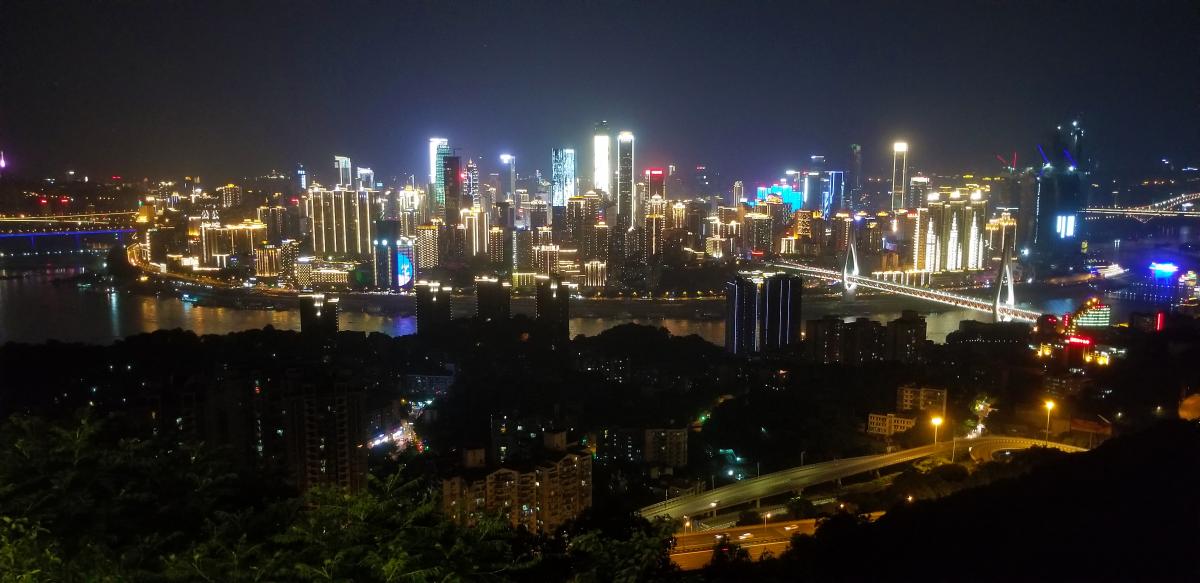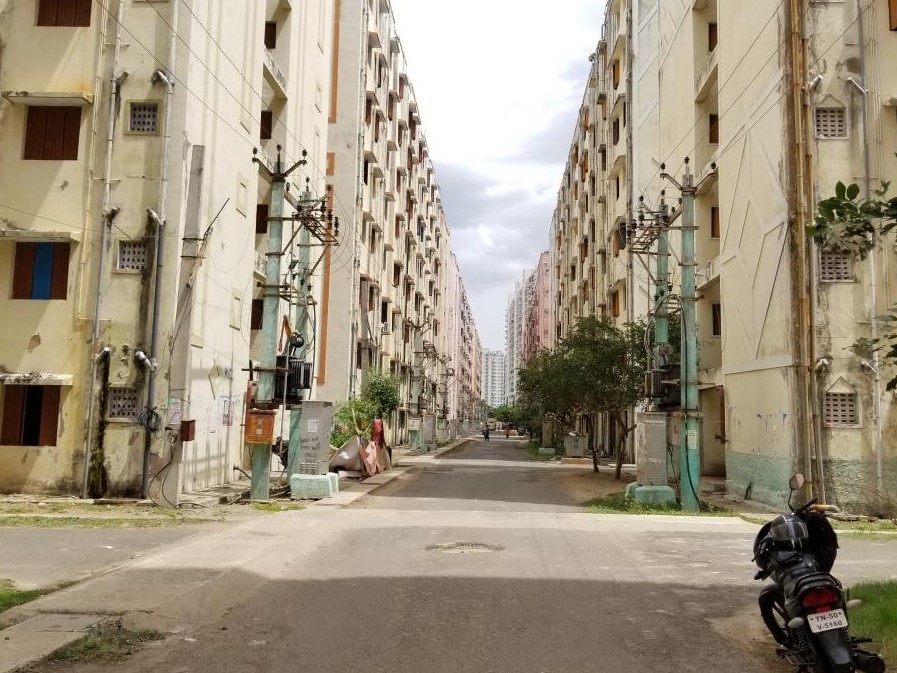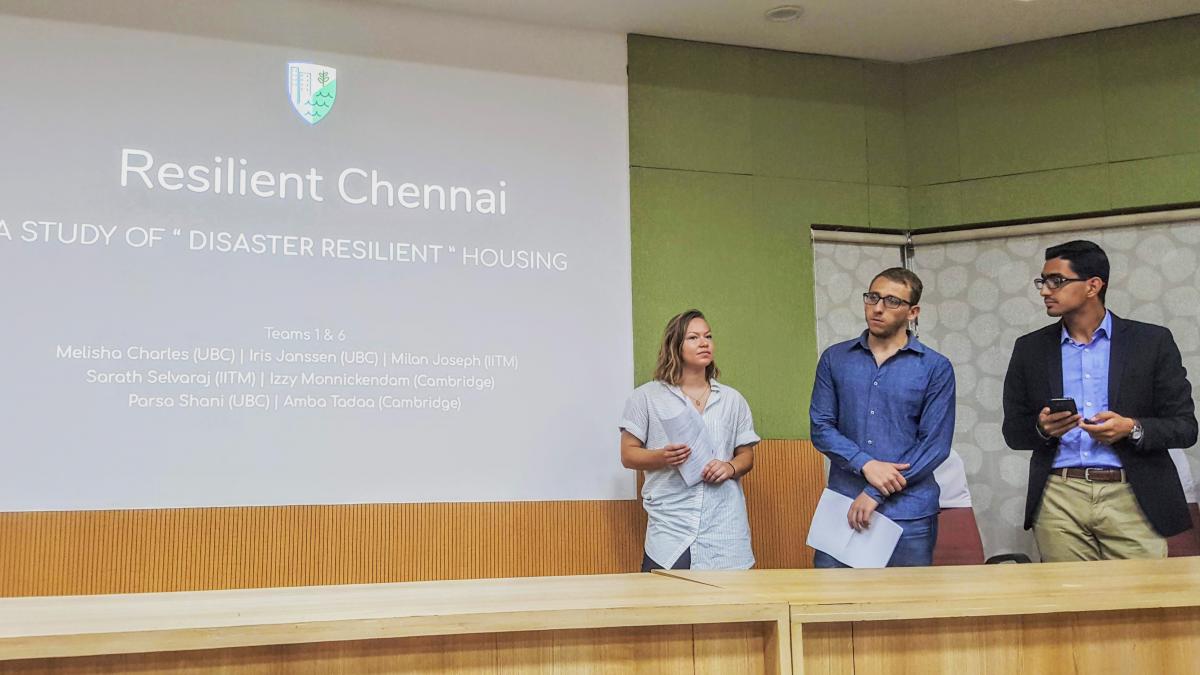Growing up in Vancouver, Parsa Shani always had a “lingering notion” that there was a lot more world out there. When he and his family, originally from Iran, moved back for a while during his middle and high school years, Shani experienced a country very different from Canada. The “massive, hectic, megacity of Tehran” made an impression and piqued his curious mind. That also lingered.
Three years later, Shani was wrapping Year 2 of a UBC Civil Engineering degree. But the standard co-op offerings – construction and geotech work – weren’t speaking to him. Cities were. He ended up foregoing the co-ops altogether and signed up for a UBC global seminar in Chongqing, China – and that altered his course for good.
“The whole theme was, Let’s go to China to understand how it’s been able to achieve such monumental growth,” Shani recalls. “I’d never even heard of Chongqing. Yet at the time, it was the fastest-growing citiy in the world. In fact, it’s been dubbed ‘the largest city no one’s ever heard of.’ I thought, how is this? And, beyond GDP numbers, what does this actually mean?”

Chongqing, China is among the planet's fastest-growing cities (photo: Parsa Shani)
The strategic analysis of this city of 31 million led to a 2019 exchange to Seattle as a Corbett scholar. Next came a multi-disciplinary project in Chennai, India, to learn about the root causes of the lack of disaster-resilient housing, particularly against floods, a chronic problem in Chennai. Shani joined with 30 students and faculty from four universities, via a course offered through UBC Sauder School of Business, funded by a Global Innovation Grant, in summer 2019. What emerged for Shani was a passion for urban resilience in all its messy complexity.
The term refers to an urban area’s ability to absorb shock and bounce back, Shani explains. But the distinction is that shocks can be acute or chronic. For example, a pandemic is an acute shock, but how people maintain their livelihoods and nurture social bonds when forced to stay apart, that’s the chronic aftermath. What interested Shani was conceptualizing frameworks and methodologies to make a city more responsive to challenges across social, economic and governance arenas, so that it is more resilient by design – not just when a once-in-a-blue-moon event occurs.

Apartments in Chennai, India (photo: Parsa Shani)
The Chennai initiative, in partnership with many others, involved field work proposing solutions to a multifaceted problem. As a civil engineer, Shani was ready to jump in on factors like building codes and construction. But what emerged was much more nuanced: building plans approved to win fees versus code adherence; cement amounts reduced, so a portion could be sold for profit on the black market; new apartments situated in flood plains because that’s where land was most affordable, though too far from residents’ jobs, not to mention the cyclical flooding impacts.
“The world is an unequal place – that’s not new,” Shani says. “But we still talk about it less than we should. At a very high level, my hope is through education and actions to inspire others to act in a way that pulls up not just the developing world but closes that equality gap. If I’m able to make the slightest dent there, I’d call that a success.”

Iris Janssen, Amba Tadaa and Parsa Shani at their final presentation in Chennai (photo: Parsa Shani)
Over time, it’s the quick wins along the way that keep Shani going; that, and being “young and naïve and too optimistic,” he says with a laugh. “Maybe in 15 years I’ll have a different perspective. I’ll need to keep challenging myself as I go on, I’m sure.”
Experiences in both China and India as a cohort proved valuable, Shani says, as a baseline for discussion and perspective-taking; that, and collaborating with people from different disciplines. A way to encourage these charette-like approaches, he believes, is by preventing same-subject silos from solidifying during the first years of university. Surrounded by engineers every day, all day, inevitably informed Shani’s “little bubble” of a worldview. “I think we need to prevent those silos from forming in the first place,” he says, “whether through more opportunities to collaborate across disciplines at the outset or incorporating international components where you’re forced to work closely with students from different majors.”
It was those thorny discussions in Chennai, tackling barrier after barrier, that propelled Shani to apply for a position at the United Nations. He’s now a Sustainable Finance Analyst Intern at the UN Human Settlements Programme (UN-Habitat), working with others around the globe (based in Nairobi, but remotely for now). The new endeavor aims to dispel the notion that investing in sustainable urban developments cannot be financially viable, and to attract private dollars to Global South countries. Shani’s group fills a pipeline with well-researched, promising investments: from a mass transit system in the Philippines to leveraging solar energy for water treatment in Mexico. The ultimate goal is to finance cities and projects that might not otherwise get funded.
“Says Shani: Whatever you’re doing, I think it’s really important to be cautious how you approach issues that are often tied to people’s livelihoods. And that comes from a place of privilege. As a Western-educated person, our work in this space must be coupled with a sense of responsibility and urgency – always.”
Read more on UN-Habitat’s Cities Investment Facility.
Find out more about UBC’s global seminars.
